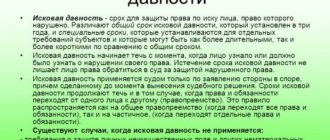According to the norms of Russian family law, parents are obliged to support their own minor children. It does not matter whether they are married: even divorce and other circumstances will not remove the obligation to support children. Accordingly, the parent who does not live with the child must pay child support until the child turns 18 years old. After reaching the age of majority, alimony obligations are removed. But this doesn't always happen. If a parent has arrears of child support , it must be paid after the child reaches 18 years of age . The bailiff does not have the right to close enforcement proceedings. He is obliged to take measures to ensure that the debtor repays the debt in full.
Moreover, the statute of limitations does not apply . You shouldn’t wait 3 years after your child’s 18th birthday and think that the debt will be written off. According to the law, this will not happen until the debt is fully repaid. After turning 18, you can collect alimony debts. We'll tell you how to do this without going to court and when you need to file an application with the court. And what to do if the payer is not to blame for the debt.
Image: pixabay.com
The legislative framework
How to determine the statute of limitations for collecting alimony, what laws should you rely on? The list of grounds for assigning alimony obligations and the procedure for calculating the statute of limitations are established by Chapters 13-17 of the RF IC; these norms contain:
- Peculiarities of notarized confirmation of the alimony payment agreement. In accordance with Article 100 of the RF IC, this document can be used as a writ of execution in the event of the need for forced collection of payments and the accrual of penalties.
- The deadlines for applying for payments in the presence of a court decision are determined by Art. 107 RF IC.
- The need for indexation of payments and the procedure for its calculation are regulated by Art. 117 RF IC.
- The legal grounds for termination of payments for alimony obligations are indicated by Art. 120 IC RF.
- The possibility of exemption from alimony is provided for in Art. 114 RF IC.
- The specifics of collecting the remaining funds to compensate for additional expenses of relatives are specified in Art. 88 RF IC. This category of payments may include coverage for expensive medical treatment.
- The conditions and possibilities for establishing alimony obligations in favor of adult disabled children are provided for in Art. 85 RF IC.
The law provides for the possibility of reinstating the statute of limitations for child support.
Acceptance of the petition and consideration of the case, hearing the opinions of the parties, as well as assessing the significance of the reason for which restoration is necessary is carried out in accordance with the provisions of the Civil Procedure Code of the Russian Federation.
When drawing up a statement of claim, you must be guided by the provisions of Art. 131 of the Code of Civil Procedure of the Russian Federation, which specifies the requirements for the content of the document:
- the name of the court, which is selected taking into account the place of residence of the defendant or child in whose favor alimony is awarded;
- indication of the type of document (statement of claim for collection of alimony payments);
- listing references to legislative norms confirming the legality of the requirements;
- calculation of the amount of claims from the date of application, 3 years before going to court, determination of the penalty for each day of delay.
A petition in order to restore the statute of limitations for arrears of alimony must be submitted together with documents confirming the delay in applying for protection of legal rights for a good reason. This data is submitted as an attachment to the application.
Who has the right to file a claim and when?
Is there a statute of limitations for alimony? Confirmation of the legality of the plaintiff’s demands for alimony gives him the right to receive these payments. At the same time, in accordance with Art. 107 of the RF IC, the accrual of payments begins from the day the statement of claim is registered in court. For the collection of funds for alimony obligations, only the date of application to the court is important, and not the date of the appearance of the grounds for payment (for example, the birth of a child) or the statute of limitations of the writ of execution for alimony.
This is also important to know:
How to get child support for three children and how much money is due for them?
This rule allows you to protect the rights of the plaintiff, because alimony payments, if the court satisfies the claim, are not affected by the duration of the process. This approach becomes significant for citizens whose hearing of alimony cases has dragged on for months. The deadline for collecting alimony is the child reaching the age of majority, with the exception of the case of the need to provide for disabled children, in which case you can apply for alimony after a divorce even after they reach 18 years of age.
Several restrictions
The alimony obligations themselves do not have a statute of limitations, but the debt on them can be collected only in accordance with the general civil requirements for such payments. Therefore, it is worth considering the statute of limitations for alimony debt. You can demand the collection of alimony for the previous period in accordance with the provisions of Art. 107 RF IC. In particular, it states that alimony can be claimed for a period not exceeding 3 years before the date of application to the court, provided:
- the plaintiff taking independent measures to obtain funds to support the child;
- confirmation of the actions or inaction of the defendant, indicating evasion of the obligation to support the child.
Correspondence with the plaintiff, represented by letters and notices, and witness testimony can be used as supporting documents. The motives for refusal or inaction to make a court decision often do not matter.
Period for protecting rights in family law
The limitation period is a period established by law to protect the interests of a citizen whose rights were violated by the guilty actions of other individuals, legal entities or government officials. The protection of rights is entrusted to the judiciary. The deadlines may vary depending on what legislation is violated.
The Family Code does not provide for a deadline for applying for the collection of financial support for disabled or minor relatives. The applicant may apply to the court at any time from the moment the right arises until the emergence of grounds for termination of the right of collection.
Example . Klimov D.M. and Klimova A.N. divorced. Minor Igor remained to live with his mother. Citizen Klimova A.N. decided to apply for alimony 3 years after the divorce. The statement of claim included a requirement to withhold financial support for the child and ex-wife. As grounds for collecting funds from the mother, Klimova A.N. indicated that at the time of the divorce the child was under 3 years old and she had the right to additional funds from her ex-husband. The court satisfied the child support requirements. Financial support for the ex-wife was denied.
List of valid reasons for missing the statute of limitations on alimony
Sometimes a person cannot file for child support on time. The renewal of deadlines associated with alimony payments is regulated by the norms of the Civil Code, taking into account the reasons for omission. The decision on each appeal is individual. The list of valid reasons includes:
- the presence of a disease, completion of a course of treatment, which is confirmed by relevant extracts from the patient’s chart;
- legal ignorance;
- the need to stay with close relatives in the event of the death of one of them or the need to organize constant care in case of a serious illness;
- long business trip;
- Force Majeure.
Deadlines for filing a writ of execution
Receiving a positive decision at the entrance of a court hearing allows the plaintiff to receive a writ of execution containing information about the payer himself and the amount of the assigned payments.
Free legal consultation We will answer your question in 5 minutes!
Ask a Question
The writ of execution must be submitted to the FSSP within 3 years from the date of receipt; its termination occurs when the child in whose favor the payments are made reaches adulthood. We have already said that the statute of limitations for alimony after adulthood is considered differently. When determining deadlines for execution, bailiffs are guided by the norms of the Federal Law “On Enforcement Proceedings”, in particular:
Free legal consultation
We will answer your question in 5 minutes!
Ask a Question
- initiation of enforcement proceedings must be carried out within 1 day from the receipt of the application, confirmed by the writ of execution;
- within 24 hours from the date of the decision, copies of the paperwork must be sent to the collector and the payer.
Voluntary payment of the debt within 5 days from the receipt of the demand allows the payer to avoid the need to pay an enforcement fee in the amount of 7% of the debt amount. All information about enforcement proceedings is entered into the FSSP electronic database, where you can not only check the existence of a debt using information about the date of birth and full name of the debtor, but also pay the required amount.
Period during which financial security can be recovered
The statute of limitations for child support after 18 years is limited. And before reaching the age of majority, the legal representative has the right to go to court at any time if there are grounds.
Important! Withholding of funds for a disabled or minor relative begins from the moment an application is filed with the court.
The law provides the grounds under which the legal representative of a minor is deprived of the right to claim financial support from the parent. These include:
- adoption of a child;
- death of a minor.
If one of the listed grounds is present, the legal representative is deprived of the right to demand funds to provide for the needs of the child. In particular, it is prohibited to apply a three-year period for collecting funds for the past period.
Limitation period for alimony obligations for spousal support
Filing for alimony (for your maintenance) from your ex-spouse is carried out in a number of cases. The following has the right to do so:
- pregnant woman;
- one of the parents caring for a disabled child;
- one of the spouses who received the status of disabled person no later than 1 year after the divorce.
This is also important to know:
Deductions under a writ of execution from wages: the procedure for calculating alimony and features of the procedure
The statute of limitations for alimony awarded in favor of a pregnant woman or one on maternity leave is 1 year. When appointed in favor of a disabled spouse, the statute of limitations is 3 years. An exception is the case of disability due to the fault of the defendant; in this case, the statute of limitations for recovery does not matter.
Pensioners who retired within 5 years after the divorce can also apply for alimony. A necessary condition is the need to receive financial assistance and the duration of the officially dissolved marriage (from 10 years).
Time limits for debt collection
How long is the statute of limitations for child support? The legislation provides for debt collection for a period of 3 years, with the amount of the debt increasing by the amount of the penalty. When determining the amount of debt, the following algorithm is used:
- Determination of the amount for the entire period.
- Counting days overdue.
- The amount of debt is multiplied by 0.1%, and the result is multiplied by the number of days.
- The amount of the principal debt and the amount of accrued penalties are added up to obtain information about the total debt of the payer.
The principle of calculating arrears for alimony obligations
In most cases, it is easier to understand the features of accrual and calculation of debt by studying a practical example:
Based on the court decision, the man had to pay 10,000 rubles monthly for child support or make transfers in the form of 25% of income. Until June 16, 2017, he made payments in good faith, but after that he stopped paying and began to refuse contact with the child’s mother. All attempts to negotiate peacefully were ignored.
In 2021, the woman filed a lawsuit demanding to collect the debt and penalties for the past 375 days. The calculation of the amount was carried out using the following algorithms:
- Determining the amount of debt for the year (10,000 rubles * 12 months = 120,000 rubles).
- Calculation of the amount of the penalty for 1 day (120000*0.1%=120 rubles).
- Calculation of the penalty for the entire period (120 rubles * 375 days = 45,000 rubles).
- Adjustment of the amount payable (45,000+120,000=165,000 rubles).
The period for collecting alimony depends on a number of circumstances.
Practical examples
You can understand the principles of calculating the limitation period thanks to practical examples that describe situations in detail.
Limitation period for alimony for a disabled husband
Spouses are responsible for financial support for each other. If assistance is not provided voluntarily, then the needy spouse can recover it through the court. It does not matter whether the parties live together.
You can apply for assistance during the entire official marriage, as well as before the court decision on divorce enters into legal force. Also, the opportunity remains for 12 months from the date of divorce.
Example. The Minkovs married in 1988. There are no common children. The man worked all his life in hazardous work, and in 2005 he received an industrial injury and a group 2 disability. Compensation payments from the organization have been made.
A year later, the man needed expensive treatment. During this time, his wife completely stopped helping him, and shortly before going to court, she moved to live with her sister. The disabled person was left without help, and the pension and payments from the company were not enough to buy expensive drugs prescribed by a doctor.
Then the man went to court to collect alimony in the amount of 5,000 rubles. from his ex-wife for the past year on the basis of Art. 89 RF IC.
The claim was satisfied: the plaintiff is in need, and payments were established on the basis of the financial situation of both parties and taking into account the cost of living.
Limitation period for child support
The couple officially divorced in 2015, when the child was 15 years old. The woman needed money, tried to negotiate with her ex-husband peacefully, but after her daughter turned 18, she decided to recover funds from her ex-husband for previously unpaid alimony along with a penalty.
The amount was determined as follows:
- The average salary of the payer for the last 3 years has been established by month.
- The amount of the average monthly salary is multiplied by 0.25 - this is the amount of payments according to Art. 81 RF IC for one child.
- Alimony payments for all months are summed up, and the penalty is calculated.
The average salary is 30,000 rubles.
30,000 x 25% = 7,500 rub. - monthly alimony.
7,500 x 36 = 270,000 rubles. – payments for 36 months (3 years).
Number of days overdue – 1095.
270,000 x 0.1% = 270 rubles. – penalty for 1 day.
270 x 1095 = 295,650 rub. - penalty for the entire time.
270,000 + 295,650 = 565,650 rubles. – total to be paid along with penalties according to the claims.
Renewal of statute of limitations
If you miss the legal 3 years to apply for a penalty, it is possible to restore this right if you have documents confirming the existence of a good reason that precludes a timely appeal to the court:
- the plaintiff's health condition;
- caring for a seriously ill child or relative;
- long business trip to another city or country;
- long-term treatment in a hospital or sanatorium.
This is also important to know:
Appeal against the decision of the magistrate to collect alimony: sample application and procedure
To obtain a positive decision, you must provide documentary evidence of a valid reason. If the deadline for collecting alimony is missed, then you can receive payments for child support after he turns 18 years old, subject to the restoration of the statute of limitations.
Possibility of collection
The following may submit demands for the assignment of child support payments before the expiration of the statute of limitations for claims:
- parents;
- legal representatives, which include guardians or court-appointed trustees;
- adoptive parents whose status is officially confirmed by relevant documents;
- guardianship authorities, in case of transfer of responsibility for the fate of the child to them.
Collection under an agreement drawn up by a notary is carried out in the usual manner after contacting the FSSP. There is no statute of limitations for this case of 3 years. Payments are collected based on the recipient's application in favor of a minor child.
Limitation period for non-payment of financial support
The obligation to repay the debt continues after the child reaches adulthood. The statute of limitations for terminating enforcement proceedings is 3 years. The basis for its termination is not the bringing of a citizen to administrative and criminal liability.
Important! The amount of the fine provided for as administrative or criminal liability is not included in the amount of the debt for financial support of children.
The necessary conditions
The possibility of obtaining a positive decision on a claim for alimony requires the fulfillment of a number of conditions:
- The child is a minor. The accrual of alimony payments stops when the recipient turns 18 years old. The basis for refusal to assign alimony is the early emancipation of a child of 16 years old due to his early marriage, official employment, or entrepreneurial activity.
- The child receives full-time education at a university or other educational institution. This criterion is taken into account when applying for alimony for a child under the age of 21.
- Disability or disability. A child has the right to apply for alimony for his own maintenance if he has a disability of group 1 or 2 since childhood or received the status “disabled” at any time after reaching adulthood.
- Appeal to court no later than 5 years after the official divorce of a marriage that lasted at least 10 years. Only a spouse who has received the status of disabled person can request alimony.
- The need to provide additional expenses for the maintenance of parents.
Limitation period for alimony
Family Code of the Russian Federation in Art. 107 limits the limitation period for alimony obligations to 3 years. In accordance with the general requirements, a person who has not gone to court to protect his rights can use the period for collecting arrears of alimony. It is possible to receive payments for the past period only if there is evidence that measures have been taken to obtain funds from the potential payer for the maintenance of a child or disabled relative, which were ignored.
The following may be used as confirmation of attempts to pre-trial resolve the issue of fulfillment of alimony obligations:
- written receipts;
- witness's testimonies;
- data on sending notifications about the need for payments;
- confirmation that the payer has ignored the requirements to fulfill obligations to support dependent persons.
When the interested parties draw up an agreement that has undergone the mandatory procedure of certification by a notary, the law does not provide for the application of a limitation period of 3 years. Collection of funds is allowed at any time, even after the generally accepted statute of limitations for collection has expired.
The moment when alimony obligations arise is determined by the date of registration of the filing of the claim, and not the day of a positive decision on it. A court decision may impose liability on the payer to pay the debt for the past period not exceeding 3 years, provided there is no agreement on the procedure for providing financial assistance during this period.
Duty
Collection of arrears of alimony payments is limited to 3 years. If the debtor fails to make the necessary payments in accordance with the requirements of the writ of execution, the document may be suspended, but not terminated, which means that the requirements under the writ of execution will be renewed again for 3 years.
Payments
When submitting a notarized agreement to the FSSB, the document is considered a legal basis for initiating enforcement proceedings. The absence of an agreement or the fundamental refusal of the defendant to fulfill obligations under it are grounds for resolving the issue in court.
Return
In some cases, it is possible to return funds paid as alimony if it is determined that alimony claims were made without legal grounds, as a result of:
- forgery of documents submitted to the court;
- overpayments, in such cases, demand rarely occurs;
- fraud with forgery of a court decision or writ of execution;
- establishing the erroneous fact of paternity;
- recognition of an agreement on the payment of alimony as invalid due to violations of legal norms when drawing it up, for example, when using threats of physical harm or emotional pressure in the process of drawing up the document.
Term for calculating alimony
The law establishes a general deadline for assigning financial support payments to relatives. Regardless of the period for consideration of the application, the demand is filed independently or together with a request for divorce, establishment of the child’s place of residence or other dispute.
The moment from which funds will be withheld is the day the claim is filed in court.
You can receive a writ of execution immediately after a court decision is made, before it enters into legal force. If the defendant challenges the court's decision, the recipient will have to return the funds that were withheld. Accrued but unpaid funds are not refundable.
Determining the amount of payments
The main criterion for determining the amount allocated for the maintenance of a minor child is the amount of income of the payer. Interested parties can determine the amount of payments independently when drawing up an appropriate agreement or go to court.
This is also important to know:
How to calculate the state duty to reduce alimony, calculator
The defendant’s lack of official income does not cancel his obligation to pay alimony; the calculation of the amount to be transferred in favor of a minor child is based on data on the average salary in the region. When determining the amount of payments in court, the following factors are additionally taken into account:
- marital status of the defendant;
- financial well-being of both parties;
- the number of dependents supported by the defendant;
- the presence of circumstances that could make it difficult for the defendant to fulfill his alimony obligations.
Divorce
If there is no agreement on payments for child support after the official divorce between his parents, it is necessary to go to court to assign alimony. Practice shows that quite a lot of time passes between the date of official termination of family relations and the filing of a claim for alimony payments. It is necessary to take into account that the calculation of alimony begins only from the date of filing the claim.
Free legal consultation We will answer your question in 5 minutes!
Free legal consultation
We will answer your question in 5 minutes!
Ask a Question
Call: 8 800 511-39-66
The statute of limitations for receiving payments for the past period, if there is an opportunity to protect one’s rights, is 3 years. The age of the fact of official divorce or the birth of a child does not affect the possibility of receiving alimony payments. The limitation period does not exceed 36 months.
Formed debt
In accordance with the law, for the past period it is possible to recover not only alimony payments, but also the debt incurred on them. In this case, the statute of limitations is also 3 years.
Important
You can receive payments only by submitting to the court confirmation of attempts made to obtain funds for child support and evasion of duties by the payer.
Accrual of penalties
If there is a delay in alimony payments, the plaintiff may apply to the court with a request to charge a penalty on the amount of the debt. This is used to stimulate the timely fulfillment of payment obligations by the defendant and the maintenance of financial discipline. To collect penalties and accrue penalties for alimony obligations, the general statute of limitations for alimony debt is applied, corresponding to 3 years.
Concept and purpose
The statute of limitations is understood as the period of time after which the presentation of claims in court is impossible by virtue of law.
This legal phenomenon allows you to control the procedure for timely submission of demands by the recipient of funds to protect his or her ward’s rights and legitimate interests.
At the same time, the purpose of the limitation period is to control the presentation of claims by the plaintiff. After a certain period of time, the defendant is released from liability and penalties in connection with the untimely submission of claims by the recipient of funds or his legal representative.
Alimony obligations under Russian family law are established not only in favor of minor children, but also other dependents:
- disabled spouses after divorce, if the couple has been married for a long period of time;
- children over the age of 18, disabled since childhood or with acquired physical or mental disabilities that do not allow them to work on a general basis in order to generate income;
- wife during pregnancy and for 3 years after the birth of a child, regardless of the fact of being in a family relationship or after divorce;
- disabled close relatives, such as brothers and sisters, grandparents, grandchildren, stepfather or stepmother, stepsons and stepdaughters.
Arbitrage practice
In most cases, the application of the statute of limitations is used when assigning alimony obligations and determining the need to pay a penalty for existing debt in favor of the plaintiff.
Most often, the court finds itself on the side of women trying to obtain funds for the maintenance of a minor child from a man who in every possible way evades fulfilling his obligations to support the child. A negative decision can be made if the fact is established:
- full fulfillment of alimony obligations by a man;
- absence of delays or evasion of payments by the defendant;
- lack of confirmed data on attempts by a woman to demand payment of the necessary amounts for child support on a voluntary basis.
The paperwork involves studying the circumstances of both parties.
Additional questions
Application after the expiration of the legal time for application
If an appeal to the court with a request for the assignment of alimony occurred after the expiration of the statute of limitations, the defendant may make a request to refuse the proceedings on the assignment of payments in favor of a minor or disabled relative. It must be taken into account that the injured party can restore the statute of limitations if the plaintiff can prove that information about the violation of his rights arose after the expiration of the statute of limitations or there are valid reasons that made timely application for protection of his interests impossible.
To confirm the legality of claims to restore the statute of limitations, it is necessary to provide material sources. The absence of the necessary documents confirming the existence of a valid reason for absence is considered a legal basis for refusing to satisfy the claim.
If there is an agreement between the parties certified by a notary, there is no need to collect documents confirming the existence of a good reason or to prove the status of a person in need. All requirements and provisions specified in the agreement are binding and, in accordance with the law, do not require duplication in the form of obtaining a court decision. The recipient of the payments only needs to present the document to the FSSP at any time.
Procedure in case of maintenance of arrears of alimony at the time the child turns 18 years old
When a child reaches the age of majority, it is considered a legal basis for termination of child support obligations, as specified in Article 120 of the RF IC. The bailiff is obliged to close the proceedings on the case after receiving information that the child has reached the age of 18, but if there is a debt, the proceedings continue. It will be considered completed only if obligations to the child are fully fulfilled, including payment of all debts.
In some cases, the bailiff may close the case of alimony payments even if there is a debt due to the child reaching the age of majority. Such a scenario is a violation of the law:
- The rights of the child to receive the required maintenance are infringed as a result of the payer’s failure to fulfill alimony obligations.
- Inaction of an official, in particular a bailiff, in the form of failure to apply the necessary enforcement measures to stimulate the defaulter to fulfill his duty.
- Illegality of the bailiff's action. Closing enforcement proceedings in the presence of unfinished debt obligations is premature and illegal.
This is also important to know:
Child support for a disabled child: how much is it paid and until how many years?
The fact of completion of enforcement proceedings in violation of the rights of the claimant can be confirmed by obtaining a resolution to close the proceedings with a precise indication of the basis for making such a decision “The child has reached the age of majority.” If there is arrears of alimony that exist after the completion of enforcement proceedings, the recipient of the funds must appeal the closure order.
Request for child support for an adult child
Such a right arises only for a parent who independently supported the child, without collecting alimony from another. An application for the assignment of child support payments is allowed even after the child turns 18 years old. The legal grounds for filing a claim are:
- Appeal before the expiration of the statute of limitations corresponding to 3 years. When requesting alimony for the past period in favor of an 18-year-old child, it is necessary to take into account that payments can only be received for the period when he turned 15 years old and before reaching adulthood. The final date for going to court to establish child support obligations is when the child reaches the age of 21.
- The presence of confirmed facts of an appeal to the defendant in order to provide financial assistance in supporting the child, which was ignored. Printouts of SMS correspondence, communications on social networks, and witness statements can be used as supporting documents.
If there is an oral agreement to make payments for child support on a voluntary basis, the defendant who has fulfilled his obligations must provide documents confirming the fulfillment of obligations (checks, account statements) to prevent repeated payment of alimony.
Drawing up a notarized agreement is considered a guarantee of respect for the rights and interests of both parties. The agreement itself is a document that has the legal force of a writ of execution. If you have such a document, if the payer violates its obligations, it is enough to contact the FSSP for forced collection.
The absence of an agreement requires the need to apply to the court at the plaintiff’s place of residence, and after receiving a positive decision and issuing a writ of execution, applying to the FSSP to collect funds from the defaulter.
Collection of alimony for more than 3 years
The procedure for receiving payments and their amount are determined by a court order, court decision, or established by the parties voluntarily, and then prescribed in the appropriate agreement in the presence of a notary. If there is a writ of execution, the claimant can receive from the defendant the amount for the entire period of non-payment.
Art. 113 of the Family Code of the Russian Federation indicates the need to make payments for the entire period of formation of the debt without applying a statute of limitations of 3 years in the event of failure by the payer to fulfill obligations through his own fault. Additionally, a penalty of 0.1% may be imposed on the principal amount for each late payment day.
The calculation of the amounts to be paid is made by the bailiff conducting open proceedings. After completing the calculations, they are sent to the court to obtain a decision on the imposition of a penalty.
After alimony has been assigned and no payments have been made, you must try to resolve this issue peacefully with your ex-spouse. The defendant’s reluctance to make the necessary payments requires filing a writ of execution with the FSSP in order to apply legal measures to him. The recipient is recommended to periodically check the work of the bailiff in order to have an idea of the measures taken against the defendant who evades payment of alimony.
The complexity of such cases lies in the second parent’s lack of understanding of the responsibility for supporting a minor child, which allows him to hide information about income and evade official employment. In such cases, in order to receive payment for the past period, it may be necessary to attract witnesses or provide audio or video information.
Limitation period for alimony
Procedural legislation provides for a limitation period of 3 years. Alimony obligations are no exception. Only in the absence of payments based on the presented writ of execution allows the recipient to demand recovery of funds from the defendant even after the expiration of this period. But the alimony debt is calculated from the moment the writ of execution is submitted.
Tax accounting for writing off bad debt
Written off accounts payable are taken into account as part of non-operating income (clause 18 of Article 250 of the Tax Code of the Russian Federation), and receivables are accounted for at the expense of a “doubtful” reserve or as part of non-operating expenses (subclause 2 of clause 2 of Article 265 of the Tax Code of the Russian Federation), if the reserve is insufficient or it was not created.
At the same time, it is important to write off bad debts with an expired statute of limitations strictly within the period of expiration of this period. This is what the tax authorities think (see letter of the Federal Tax Service of Russia for Moscow dated April 13, 2011 No. 16-15/ [email protected] ) and judges (see the ruling of the Supreme Court of the Russian Federation dated October 15, 2014 No. 302-KG14-2259, resolutions of the Presidium of the Supreme Arbitration Court dated June 15, 2010 No. 1574/10, FAS Moscow District dated September 4, 2013 No. A40-79684/12-116-172). The main argument is Art. 272 of the Tax Code of the Russian Federation does not give the taxpayer the right to arbitrarily choose the period for recognizing this expense.
The Ministry of Finance’s opinion on the date on which an overdue debt is recognized as an expense can be found here.
But with VAT when writing off receivables and payables, controversial situations may arise. For details, see the materials:
- “How to take into account VAT amounts when writing off accounts receivable?”;
- “VAT when writing off accounts payable: problematic situations.”









